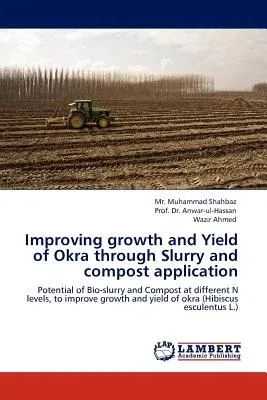Muhammad Shahbaz
(Author)Improving Growth and Yield of Okra Through Slurry and Compost ApplicationPaperback, 6 August 2011

Qty
1
Turbo
Ships in 2 - 3 days
In Stock
Free Delivery
Cash on Delivery
15 Days
Free Returns
Secure Checkout
Print Length
112 pages
Language
English
Publisher
LAP Lambert Academic Publishing
Date Published
6 Aug 2011
ISBN-10
3845430400
ISBN-13
9783845430409
Description
Product Details
Book Format:
Paperback
Country of Origin:
US
Date Published:
6 August 2011
Dimensions:
22.86 x
15.24 x
0.69 cm
ISBN-10:
3845430400
ISBN-13:
9783845430409
Language:
English
Location:
Saarbrucken
Pages:
112
Publisher:
Weight:
176.9 gm

